About Us
Program Highlights
- Comprehensive Curriculum: Our fellowship curriculum covers a wide range of topics, including the geriatric assessment using the Cancer and Aging Research Group (CARG) tool and the Geriatric 5Ms Framework, cancer treatment in older adults, palliative care, and end-of-life care.
- Mentorship: Fellows receive individualized mentorship and guidance from experienced faculty members in throughout their training, including trained Geriatric Oncologists.
- Clinical Rotations: Fellows gain hands-on experience through clinical rotations at BMC, VA Boston Health System, and affiliated institutions in the Boston area.
- Networking and Conferences: Fellows have the opportunity to network with peers and experts in geriatric oncology through conferences, seminars, and research presentations at Society of Geriatric Oncology, American Society of Clinical Oncology, American Society of Hematology, American Geriatrics Society, Gerontology Society of America and more.
What is Geriatrics and Hematology & Medical Oncology?
The risk of most cancers increases with age. Aging is heterogenous and older adults with cancer have unique needs compared to younger patients. In this era of precision oncology, Geriatric Oncology allows us to ‘stage the aging’ and individualize the care to the individual patient.
Why Consider training in a combined Geriatrics and Hematology & Medical Oncology Program?
Our 4-year combined Geriatrics/Hematology/Oncology fellowship provides training in both Geriatrics and Hematology/Oncology. We have a unique history!
Through experiences in both inpatient and outpatient geriatrics and hematology/oncology across various settings, as well as performing Geriatric Assessments, fellows learn the fundamental skills to ensure they are prepared to be future leaders in this essential field.
If you are passionate about the care of older adults with cancer, this program is a perfect fit for you!
The History of the Geriatrics and Hematology & Medical Oncology Program
The Geriatrics/Oncology Training Program at Boston Medical Center was created in 2001 as one of ten programs funded by an American Society of Clinical Oncology (ASCO) pilot training grant to build combined Geriatric Oncology training programs in the United States. Originally a 3-year program, we aimed to provide fellows interested in the intersection between cancer and aging 1) a clinical focus on underserved populations, 2) a comprehensive, mentored research training experience in the field of geriatric oncology and 3) leadership training including courses in teaching, evidence-based medicine, and health systems management through the BMC Geriatrics Center of Excellence. The program later became ACGME accredited as a combined 4-year program, allowing graduates to pursue board certification in Geriatrics, Hematology and Oncology by the completion of the program. For over 20 years, we have maintained our unwavering commitment to training clinical role models, researchers, and leaders necessary to address the unique needs of older adult patients living with cancer.
Where Do our Fellows Go After Training?
Training in our combined Geriatric Hematology & Medical Oncology program equips our fellows with the expertise to care for older adults with cancer using evidence based tools. Graduates of the program have a wide variety of career opportunities. Many go on to careers in Hematology or Medical Oncology at academic centers or community based settings and incorporate the principles of Geriatric Oncology into their clinical practice. Others have gone onto become Geriatrics faculty or Geriatrics Oncology faculty at academic centers, practicing both Hematology or Medical Oncology, while also seeing Geriatrics Oncology Assessment Consults. In addition, many of our graduates are thought and research leaders in the Geriatrics Oncology community.
Frequently Asked Questions?
Will Year 1 be mostly Geriatrics focused and Years 2-4 be Hematology & Medical Oncology focused?
Yes, year 1 focuses on Geriatrics. There are 2 months of Hematology & Medical Oncology consults, 1 elective month, a 6 month Oncology clinic, and a 6 month Hematology clinic.
If Year 1 is mostly Geriatrics focused, do we get any Geriatrics exposure after that first year during our transition to Hematology & Medical Oncology?
Yes. There is a lot of flexibility to create your own path in Years 3-4, often with a Geriatrics & Medical Oncology component.
When can I take the Geriatrics boards?
You are eligible in your 4th year of Fellowship.
What if I have not had a lot of Geriatrics Oncology exposure?
We understand that some training programs have limited exposure to Geriatrics in general, an very rarely will you have the ability to work with a board-certified Geriatric Oncologist either clinically or through scholarly projects. If you have a passion for treating older adults with cancer, consider applying to learn more!
Will I be limited in job options?
Our graduates go on to practice in various practice settings, including inpatient, ambulatory, and consultative work. While many practice in a true Geriatric Oncology capacity, others have chosen to dedicate their careers more heavily to either Hematology & Medical Oncology or Geriatrics. If anything, additional training in the field of Geriatrics Oncology opens more doors for future employment, by allowing you to develop a unique niche in your clinical work and research during fellowship that is highly desirable to employers.
What can I do after training?
Please see the “Where Do our Fellows Go After Training” section above.
Can I match and rank in BOTH programs?
Yes!
If I apply to both the Geriatrics-Oncology and Hematology & Medical Oncology programs, do I need to interview on two separate days?
No, you would interview for both programs on the same day. We combine program interviews so that you will get to meet and interview with Geriatrics-Oncology faculty, Hematology & Medical Oncology faculty, and Geriatrics faculty
Why is it worth doing a fourth year of training?
Although four years of training may sound excessive coming out of an already long residency training period, our graduates tell us the extra year set them up for career-long success. By having dedicated time to re-integrate their skills from all 3 fields and pursue meaningful research and scholarship in this defined area, upon graduation you are equipped to hit the ground running and become a leader in your field.
Meet our Program Directors
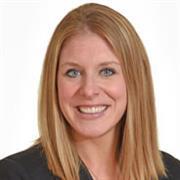
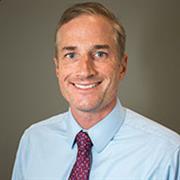
Ryan Chippendale, MD J. Mark Sloan, MD
Geriatrics Fellowship Hematology & Medical Oncology
Program Director Fellowship Program Director
Meet our Geriatric Oncology Faculty
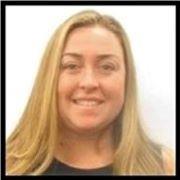
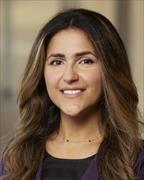
Meredith Halpin, MD Maya Abdallah, MD
Hematology & Medical Oncology Hematology & Medical Oncology
Geriatrics Oncology Faculty Geriatrics Oncology Faculty
Fellowship Assistant
Program Director
Meet our Fellowship Program Administrators
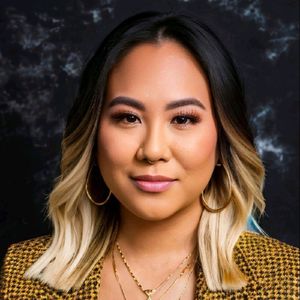
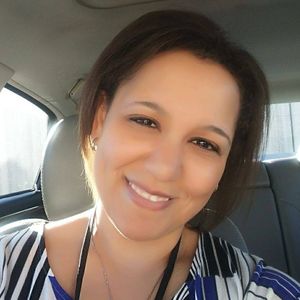
Amanda Tran, MPH Inel Ferrara
Geriatrics Fellowship Hematology & Medical Oncology
Program Administrator Fellowship Program Administrator
Follow us on Instagram!
@BUGeriatrics
@BMCHemOnc





